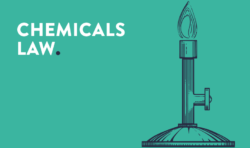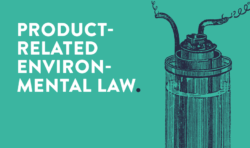The ban is to be implemented in the form of a restriction under Regulation (EC) No. 1907/2006 (REACH). For this purpose, the competent authorities of Germany, the Netherlands, Denmark, Norway and Sweden submitted a joint proposal to the European Chemicals Agency (ECHA) on 13.01.2023. The proposal was already published for the first time by ECHA on 07.02.2023 and again slightly updated on 22.03.2023. In this version, the proposal is subject to public consultation, which will continue until 25.09.2023 (we have reported: What’s changing in 2023: Chemcials law – PFAS restriction).
The restriction proposal exhibits considerable complexity for a number of reasons. The interplay between a general ban on the production, placing on the market and use of PFAS as such, in substances, in mixtures or in articles on the one hand and a currently still very extensive list of specific exemptions and transitional arrangements on the other hand also contributes to this. Companies in all sectors are therefore well advised to familiarize themselves with the details of the proposal and to submit the necessary input during the still ongoing public consultation.
However, it is the lack of a general exemption or transitional arrangement for medical devices that is proving to be a particular challenge. A number of transitional arrangements for medical devices are indeed included in the proposal. However, these are aimed only at individual, specific uses or products. Consequently, medical devices that are not subject to specific regulation would not benefit from longer transition periods under the current structure of the proposal and would have to comply with the PFAS restriction 18 months after entry into force. In view of the requirements of the MDR and the capacity bottlenecks at notified bodies, there is a threat of tangible traffic bans, supply shortages and possibly also supply gaps in this case.
The related problems and challenges for manufacturers of medical devices – also and especially against the background of the transitional regulations of the MDR – are discussed by our partner Martin Ahlhaus in a current podcast of the series “Medical Device Insights” of the Johner Institute.
Do you have any questions about this news or the podcast, or would you like to discuss it with the author? Please contact: Martin Ahlhaus






